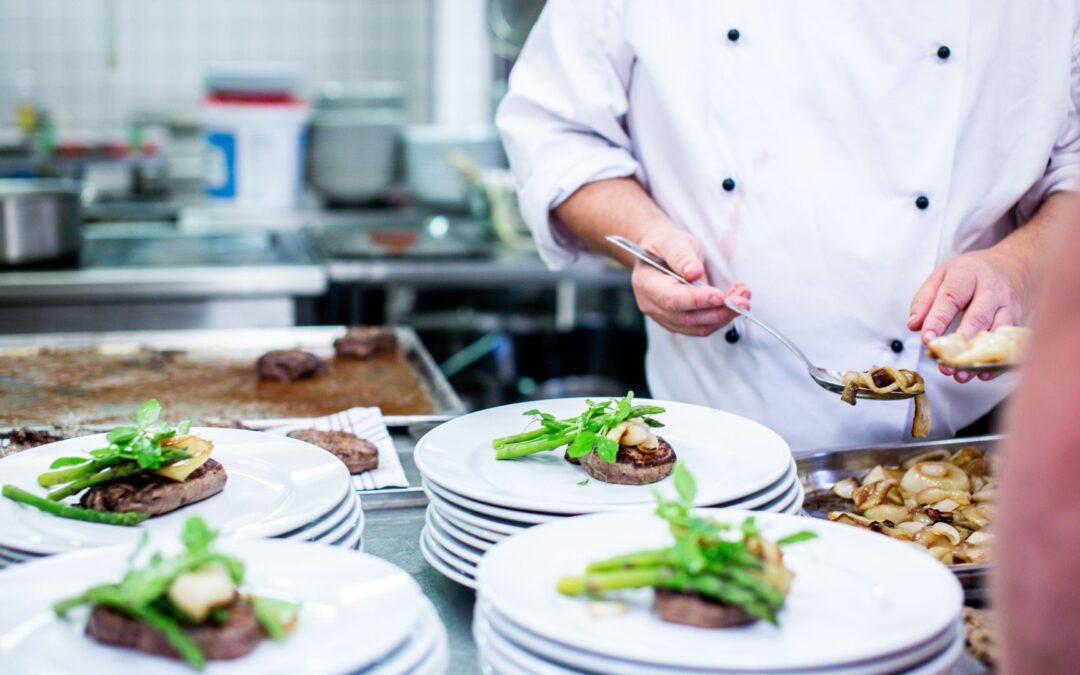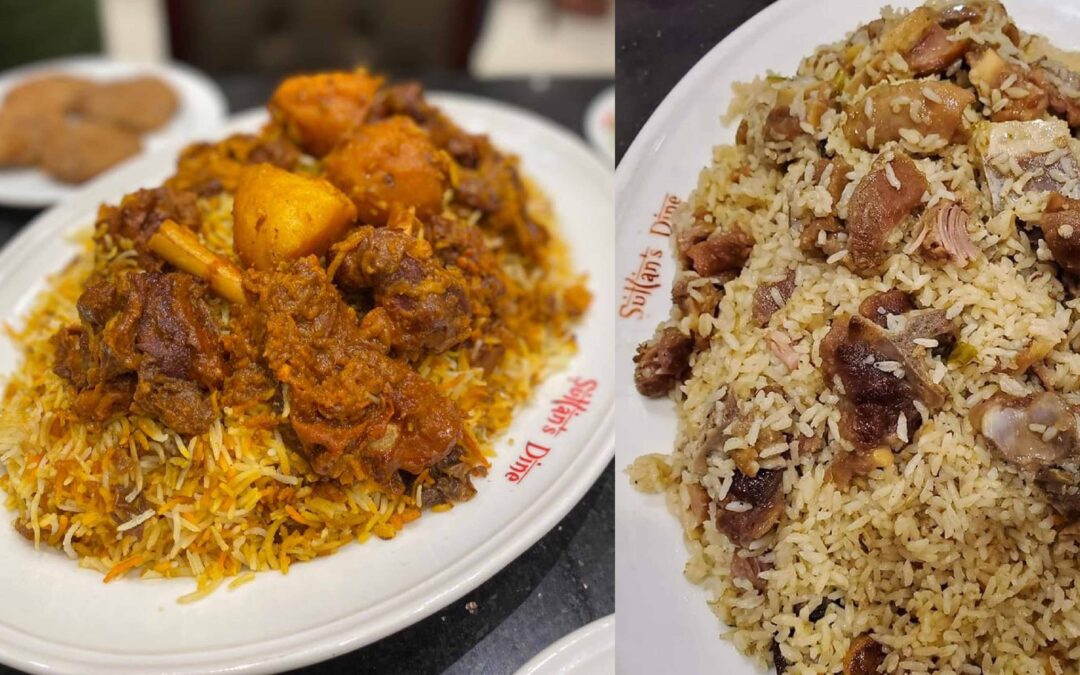Commonly we have noticed, lots of restaurants start-ups starting their business based fancy dining hall based model! Which predominantly end up as an unsuccessful venture. In our judgment, purposeful kitchen arrangement and team training is critical for a successful food business. Lucrative and comfortable dining area is important. However, this could be the second priority.
These are the minimum requirements for a restaurant setup. However, there may be additional requirements depending on the size, type, and location of your restaurant. It’s important to research and understand all the requirements in your area before starting your restaurant.
Regarding Kitchen:
A restaurant kitchen must meet certain requirements to ensure the safety and quality of the food being served to customers. Here are some of the key requirements for a restaurant kitchen:
- Equipment: A commercial-grade kitchen needs to have the right equipment to prepare, cook, and serve food, such as a stove, oven, grill, refrigerator, freezer, and dishwasher. The kitchen should also have sufficient storage space for ingredients and supplies.
- Food Safety: The kitchen must comply with food safety regulations to prevent food borne illness. This includes maintaining a safe food temperature, properly storing food, and ensuring that food is prepared in a hygienic environment.
- Ventilation and Lighting: Adequate ventilation and lighting are important to maintain a safe and healthy work environment. The kitchen should have proper exhaust ventilation to remove smoke, steam, and cooking odors.
- Plumbing and Waste Management: The kitchen must have sufficient plumbing and waste management systems to ensure that food is prepared, cooked, and stored in a safe and hygienic manner. This includes hand washing sinks, a three-compartment sink for washing, rinsing, and sanitizing, and proper disposal of food waste.
- Fire Safety: The kitchen should have proper fire safety equipment, such as fire extinguishers, to prevent and contain fires. Fire suppression systems and automatic fire suppression systems may also be required in some areas.
- Cleanliness: The kitchen must be kept clean and sanitary at all times to prevent contamination of food and to maintain a safe working environment. This includes regular cleaning and sanitizing of surfaces, equipment, and utensils.
- Pest Control: Pests, such as rodents and insects, can pose a significant health risk in a restaurant kitchen. Effective pest control measures must be in place to prevent infestations.
In tropical climates, restaurants must consider additional factors when designing and operating a kitchen area to ensure that the environment is safe, comfortable, and productive for the kitchen staff. Here are some criteria to consider:
Ventilation and Air Conditioning: The kitchen area must be well-ventilated and equipped with air conditioning to maintain a comfortable temperature for the kitchen staff. Good ventilation is also necessary to remove heat, humidity, smoke, steam, and cooking odors.
Flooring: The kitchen area must have a non-slip and heat-resistant floor to prevent accidents and injuries.
Lighting: Proper lighting is essential in a kitchen area to ensure safety and visibility. The lighting should be bright, but not so bright that it creates glare or heat.
Food Storage: In tropical climates, food can spoil quickly due to high temperatures and humidity. The kitchen must have proper storage facilities, such as refrigerators and freezers, to keep food fresh and safe to consume.
Insect and Pest Control: In tropical climates, insects and pests are more prevalent, and it is essential to have effective pest control measures in place to prevent infestations.
Waste Management: Proper waste management is critical in a kitchen area to prevent pests, odors, and contamination. The kitchen must have designated areas for food waste and trash, which should be emptied regularly.
Water Supply: The kitchen must have a reliable and clean water supply, and the water quality should be regularly tested to ensure that it is safe for consumption and cooking.
Equipment: The kitchen must have the right equipment, such as refrigerators, ovens, stoves, and dish washers, that are designed to operate in a hot and humid environment.
These are some of the key criteria to consider when designing and operating a kitchen area in a tropical climate. It’s important to work with a professional designer and adhere to local health and safety regulations to ensure a safe and efficient kitchen environment.
Staff training also a key component for the restaurants business:
Training kitchen staff is also essential to ensure the quality of food being served and the safety of both customers and employees. Here are some of the key areas that kitchen staff should be trained in:
- Food Safety: Kitchen staff should be trained in safe food handling practices, such as proper food storage, temperature control, and cross-contamination prevention. They should also be aware of food safety regulations and laws.
- Cooking Techniques: Kitchen staff should be trained in various cooking techniques, including grilling, baking, sautéing, and roasting, as well as the use of kitchen equipment, such as stoves, ovens, and grills.
- Knife Skills: Kitchen staff should be trained in safe and efficient knife skills, including proper handling, sharpening, and maintenance of knives.
- Menu Knowledge: Kitchen staff should be familiar with the menu and ingredients used in the preparation of each dish. This includes understanding dietary restrictions and allergies.
- Kitchen Organization: Kitchen staff should be trained in kitchen organization and food preparation, including plating, and presentation.
- Communication: Effective communication is essential in a busy kitchen environment. Kitchen staff should be trained in how to communicate effectively with each other, as well as with staff and customers.
- Time Management: Kitchen staff should be trained in how to manage their time effectively in a fast-paced kitchen environment, including prioritizing tasks, handling multiple orders, and working under pressure.
- Customer Service: Kitchen staff should be trained in basic customer service skills, such as being courteous, professional, and accommodating to customers’ needs.
These are some of the key areas that kitchen staff should be trained in. Regular training and ongoing professional development can help kitchen staff stay up-to-date on industry standards and best practices.
Finally, primarily people visit restaurants for tasty safe food, not for to just spending time there. However, we may have an ultramodern dining area with unsafe and unpleasant food with nonprofessional services. Not sure how long that business will survive. Hence, the primary requirement could be achieved by setting a well designed restaurant kitchen with trained work force.






